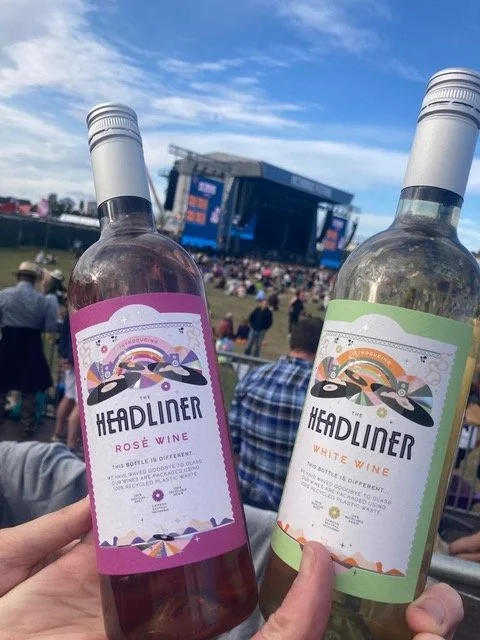Know Your Bottle
Disclaimer: Communications posted on our company's website are considered guest posts provided by third parties. While we greatly value the diverse perspectives shared by individuals within our community, it is important to note that the opinions expressed therein belong solely to the respective authors, and we do not endorse them. We cannot guarantee the accuracy, completeness, or reliability of third-party content and therefore cannot be held responsible for it. Users are encouraged to exercise discretion when engaging with such material, and we reserve the right to moderate or remove content that contravenes our guidelines.
How well do you know your drinks packaging?
Many drinks packaging options claim to be environmentally-friendly – but how much do you know about the packaging that contains your drinks?
Event Wine Solutions understands how much research and development work goes into selecting the right vessel for their product – wine that can be enjoyed safely and sustainably in a field!
After consulting with independent sustainability consultants Rubbish Ideas, Event Wine Solutions commissioned a full carbon comparison study of different vessel options which flagged up many issues surrounding the choices available to them.
The results of their study concluded that a 100% recycled rPET, mono-layer, clear plastic bottle was the lowest embodied* carbon option with a comparatively low lifecycle** carbon footprint for their range of wines. It also showed that aluminium cans contained the lowest lifecycle** carbon of any vessel, providing a good alternative for their single-serve 187ml option.
*manufacture to delivery
**entire cradle-to-cradle lifecycle
Other options on the market which were not deemed sustainable for their wine included:
- Partly recycled and partly virgin plastic bottles which were clearly not as desirable as
100% recycled rPET as they rely partly on virgin material.
- A multi-layered bottle which, although adds shelf-life, proves difficult if not
impossible to recycle again after use due.
- Coloured plastic bottles which carry the same issue as above.
- Bottles containing a plastic lining which needs to be separated from the outer container
– although recyclable in theory, the practicality is challenging.
Advising on the recyclability of the bottles, the team at Event Wine Solutions visited the Grist Environmental ‘zero-to-landfill’ recycling plant in Wiltshire where they found out exactly what happens to the wine bottles once they leave a festival site. They discovered that multi-layered plastic contains a layer of nylon or EVOH (Ethylene-vinyl alcohol copolymer) which, although theoretically recyclable, is in reality unrecyclable in normal recycling systems. Coloured plastic is also more difficult to recycle, and therefore less valuable within the recycling stream, meaning it’s less likely to be turned into a new product.
Did you know?
Demand for PET recyclate is estimated to increase by two thirds over the next 7 years, making it a valuable resource in the circular economy. The process of discovering the best possible option for their wine has helped Event Wine Solutions solidify a core objective – to make use of an existing post-consumer waste resource which in turn supports the shift towards a zero virgin-plastic future. The journey towards a virgin plastic-free world can only come about through re-using what’s already in existence – and that’s why Event Wine Solutions is confident that, for now and until they discover a better alternative, they are using the most environmentally friendly material for their wine bottles in rPET bottles and aluminium cans. They continue to invest in the research and development of new vessels and support advancements in this area. We can all agree that no single solution is perfect, but finding the best possible option available at the time is a good benchmark for the events industry as a whole.
Want to be featured just like this? Become a member today and enjoy exclusive benefits and opportunities!



